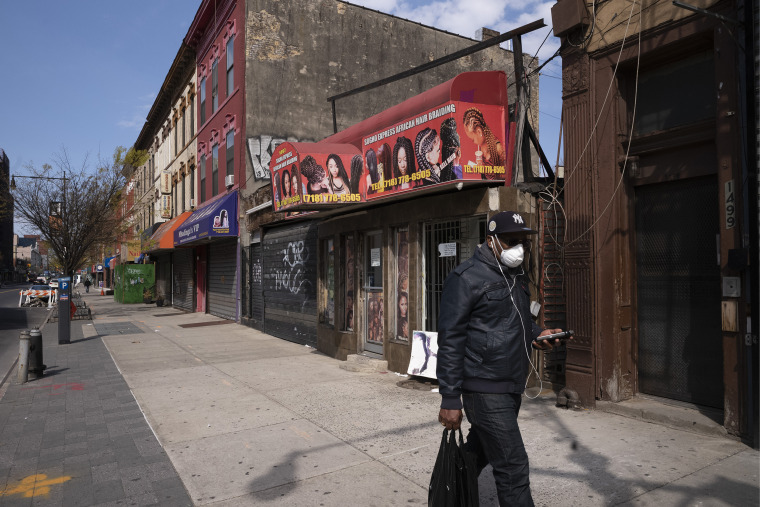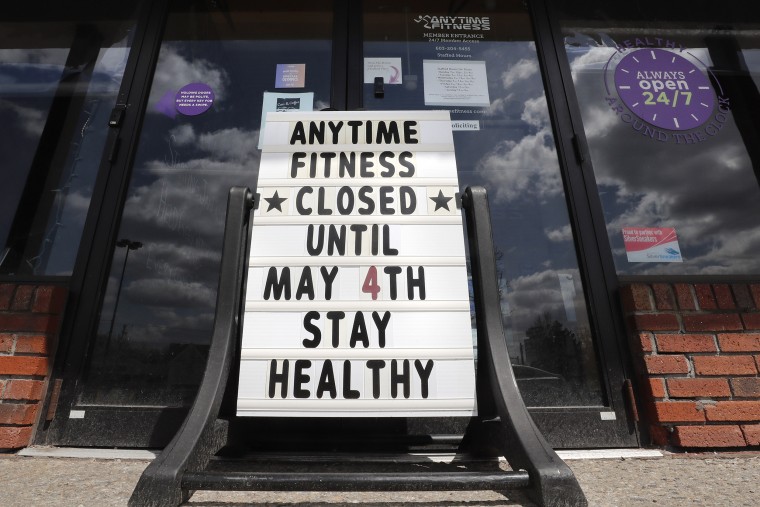Small businesses say they need more than 2 months of help to survive coronavirus crisis
Even as a new round of billion-dollar relief hits Main Street this week, some small-business owners fear that the money still isn’t enough — and that it comes with so many strings attached that it won’t help their long-term survival.
The latest version of the Paycheck Protection Program, or PPP, is expected to provide $310 billion more to help limit the economic meltdown caused by the coronavirus pandemic.
But for the federally backed loans to be forgiven, recipients must spend 75 percent of the money within eight weeks on payroll to employees who were on the books as the pandemic broke out. The remaining money can be spent on rent, utilities, employee health care benefits and mortgage payments.
Nicole Marquis, owner of the restaurant HipCityVeg in Philadelphia, a recipient of the most recent round of federal aid, said future packages must “provide flexibility in timing to use it.”
She said that while the federal government appears to believe businesses will be up and running in two months, that’s not the reality she sees.
“Now, we know that’s preposterous. That’s not going to happen,” Marquis told NBC News. “The growing reality is our industry will be nowhere near full operating capacity by then or for a long time.”

It’s unclear how much the small-business lending program can hold back the surge in joblessness — a record 22 million people sought first-time unemployment insurance in the past month. Most economists predict that the unemployment rate will reach 15 percent to 20 percent when the monthly jobs report is released in early May.
Full coverage of the coronavirus outbreak
More money is clearly needed: About 1.6 million small companies were able to get loans, the Small Business Administration said, out of at least 6 million that likely were eligible, according to census data. Bank of America economists estimate that $650 billion more would be necessary to meet demand.
Even if companies are able to secure money from the program, it converts into a low-interest loan if they don’t spend it as they’re required.
Briana and Andrew Volk, owners of The Portland Hunt + Alpine Club in Portland, Maine, said they’re grateful for the PPP but fear that even low-interest loans could work out to be burdensome for small businesses.
“We fully believe we’ll be back open and running this year,” Briana Volk said. “But if the virus comes back and we have to self-isolate again, it could be two years before we’re back to 100 percent.
“Who knows what will happen?” she asked. “We might not be able to pay the loan back even if we wanted to. It becomes really scary and uncomfortable.”

Holly Wade, director of research and policy analysis for the National Federation of Independent Business, a small-business advocacy group, said she’s been hearing those criticisms of PPP from operators across the country.
Download the NBC News app for full coverage and alerts about the coronavirus outbreak
While largely agreeing with the complaints, Wade insists there’s still a benefit in receiving money that can immediately be passed on to employees — especially those with unique skills who can’t easily be replaced or for whom it would take weeks to train replacements.
“Keeping the band together, that’s the best analogy for it,” Wade said of individual businesses and their employees.
“You want to keep these workforces intact as much as possible so when you’re on the other side of the economic crisis, you can roll more quickly.”
